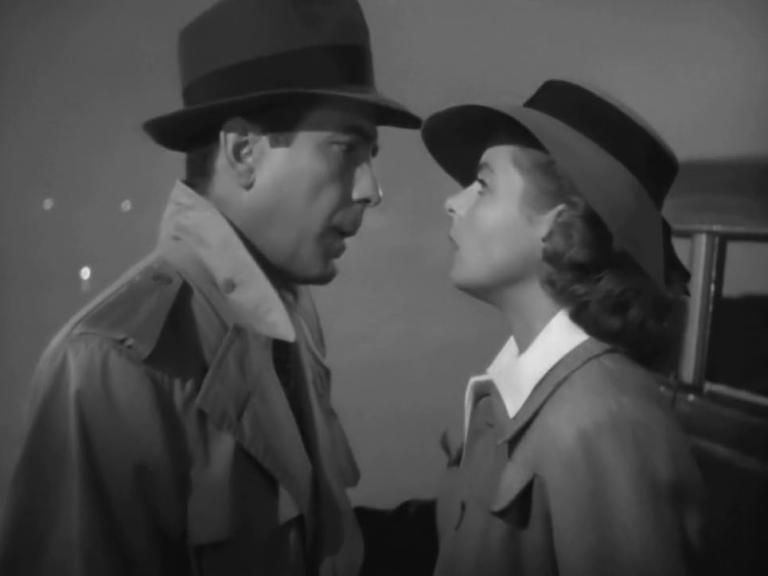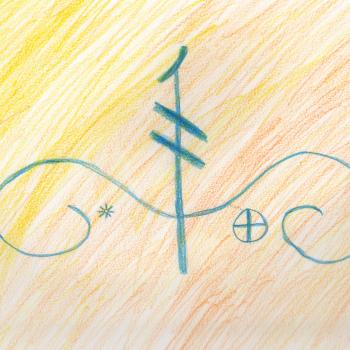Over this turn of the “Wheel of the Year”, it’s my plan to investigate and pay respect to eight archetypes of mature, sacred masculinity. The Lover at Ostara is the third installment in this series.
Context
Men’s mysteries matter. Today, young men are confronted on one hand with reactionary voices who advocate gender roles decades or centuries out of date, and on the other with professional-managerial class “progressive” voice who seem to think the answer to the reactionaries is to eliminate masculinity.
The transition to manhood is dangerous. Men are both more likely than women to be murdered and to commit murder. We’re more likely to be in prison, to be killed on the job, or to commit suicide. We’re less likely to finish high school or earn college degrees.
Boys who fail to make a successful transition to manhood end up at best being a drag on society, and at worst an active threat to people’s lives. And we will not help them make the transition by denying that manhood even exists.
To help young men through the transition, a system of archetypes can be a useful guide. No such system will be complete, of course. What I’m going to talk about in this series of posts is inspired by the book King, Warrior, Magician, Lover by Robert Moore and Douglas Gillette, and also by Robert Bly’s work, but it’s my own thing. Anything smart is probably copied from those others and anything dumb here is probably my own fault.
By considering these archetypes I am not claiming that these roles are unavailable to women or nonbinary folks. Nor am I claiming that this is the only way to be a man. I’m offering some ideas that have helped me come to terms with my own existence as an adult male human being. (And cognizant that that is as a “white” heterosexual American male, though still believing there’s enough universality in the way androgens shape our brains for the exercise to be useful). If they don’t work for you, fine, please tell us your secrets! If you’re not a man and find that they work for you, great!
For each of these archetypes, we’re going to discuss a balanced version, an excess version, and a shadow version.
Visualize us going around a mountain: at the top is the Wild Man and the realm of excess, up where the air is thin. It’s exhilarating but we can’t stay there. At the bottom is the shadow realm of fear. The healthy mature man moves around the middle heights of the mountain, in neither shadow not excess, moving between the archetypes as needed. Over this series, we will visit eight points around the mountain: the Magician, the Healer, the Lover, the Preacher, the King, the Captain, the Warrior, and the Trickster.
The Lover

“In the spring,” Tennyson tells us in his poem “Locksley Hall”, “a young man’s fancy lightly turns to thoughts of love”. So as we continue with our Wheel of the Year look at male archetypes, perhaps the Spring Equinox is a good time to consider the Lover.
But the Lover we are considering here is not necessarily a romantic or a sexual figure. The Lover’s defining behavior is contemplation. In contemplation the borders become fuzzy, the self blends with the other.
In the Lover we see the tension of longing, the desire to extend boundaries. Sitting at the self/other interface, the Lover is neither inward-directed like the Magician nor outward-directed like the King.
The sexual urge is a primal expression of this longing — and hooray for the urge, for we would not be here without it. But it extends to the cosmic as well, like the “angelheaded hipsters burning for the ancient heavenly connection to the starry dynamo in the machinery of night” Alan Ginsberg wrote about.
It’s also illustrated well in a passage from Rumi: “Last night, full of longing, asking the wine-woman for more, and then more. She teased me so lovingly I fell into her and disappeared. Then she was there alone.”
When a man sits at that self-other boundary and contemplates it until it melts a little bit, until he makes that “ancient heavenly connection” and his self extends into the other and the other into his self, then that other becomes as important to him as himself. So devotion is another key attribute of the Lover. He puts aside his own interests, and says to his beloved — in the wonderful words William Goldman used in The Princess Bride — “As you wish”.
(The Princess Bride also gives us two good examples of the relationship between the Lover and the Warrior. The Warrior’s defining characteristic is selfless action in pursuit of a goal — Fulfill The Mission. But where does the mission come from? Westley’s mission to rescue Buttercup is rooted in romantic love, while Inigo’s mission of revenge is rooted in his love for his father.)
The love we are speaking of here can be love of a romantic partner, but also includes love of one’s family, friends, and community. It extends to love of the non-human world, and to love of life in the sense of libido: “all expressions of love, pleasure, and self-preservation…the general life force that provides energy for all types of activities: biological, sexual, social, cultural, and creative”, as the American Psychological Association defines it.
This love also includes love of place — patriotism, in the positive sense that Orwell used it: “…devotion to a particular place and a particular way of life, which one believes to be the best in the world but has no wish to force on other people,” which he contrasts with the identarian power-grasping of nationalism.
Some of our great stories about love are about the competing demands of these different sorts of love. Rick and Ilsa love each other, but Ilsa also loves Laszlo. Casablanca, though, goes far beyond that love triangle and brings in each protagonist’s love for country and love for humanity, pulling them in different ways, an experience we can all relate to. And it ends on a note of love between comrades in arms: “Louis, I think this is the beginning of a beautiful friendship.”
Shadow: The Stalker
Like the Lover, the Stalker experiences a deep devotion to his beloved, a devotion which can motivate extraordinary acts. But where the healthy lover seeks communion, intimate rapport where boundaries can fade and there can be a unity or exchange with the beloved, the Stalker does not seek to merge with the beloved.
Instead, the Stalker wants to surround, to capture and control the beloved. He fears the loss of the beloved, and will do anything — even destroy the beloved, as long as it is on his own terms — to avoid that loss.
Excess: The Addict
The healthy lover seeks a blurring of boundaries through contemplation, seeks to make those boundaries permeable; but he maintains a sense of self, and the boundaries remain present while permitting exchange. But the Addict becomes lost in contemplation of the beloved, erasing all boundaries. Like Rumi falling into the wine-woman, but never coming back.
The Lover at Ostara
Our Lover, then, is not concerned only with his relationship with a romantic partner, but with his relationships ranging from the individual to the cosmic. His domain ranges from planning date night to the mystical experience.
So take some time this season to consider your relationship with this archetype. Who and what are you devoted to, on both a personal and cosmic level? Are you seeking communion and rapport with the beloved, or control? Do you maintain a proper sense of self even as you play at the boundaries, seeking connection? While it may be straightforward to resolve to devote energy to your personal relationships, what are the activities that help you cultivate those community and cosmic loves?
Evocation of the Lover
I evoke and call forth
The Lover within me
I honor and acknowledge
My capacity for devotion
On all levels: personal, community, and cosmic
I will cultivate selfless feelings
While maintaining a healthy sense of self
I will seek to know and join with my beloved
Not to control
I resolve to take the time for contemplation
To practice love — on all levels — and allow love into my life
So mote it be.

















